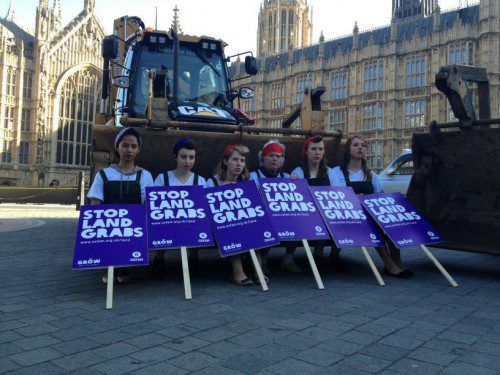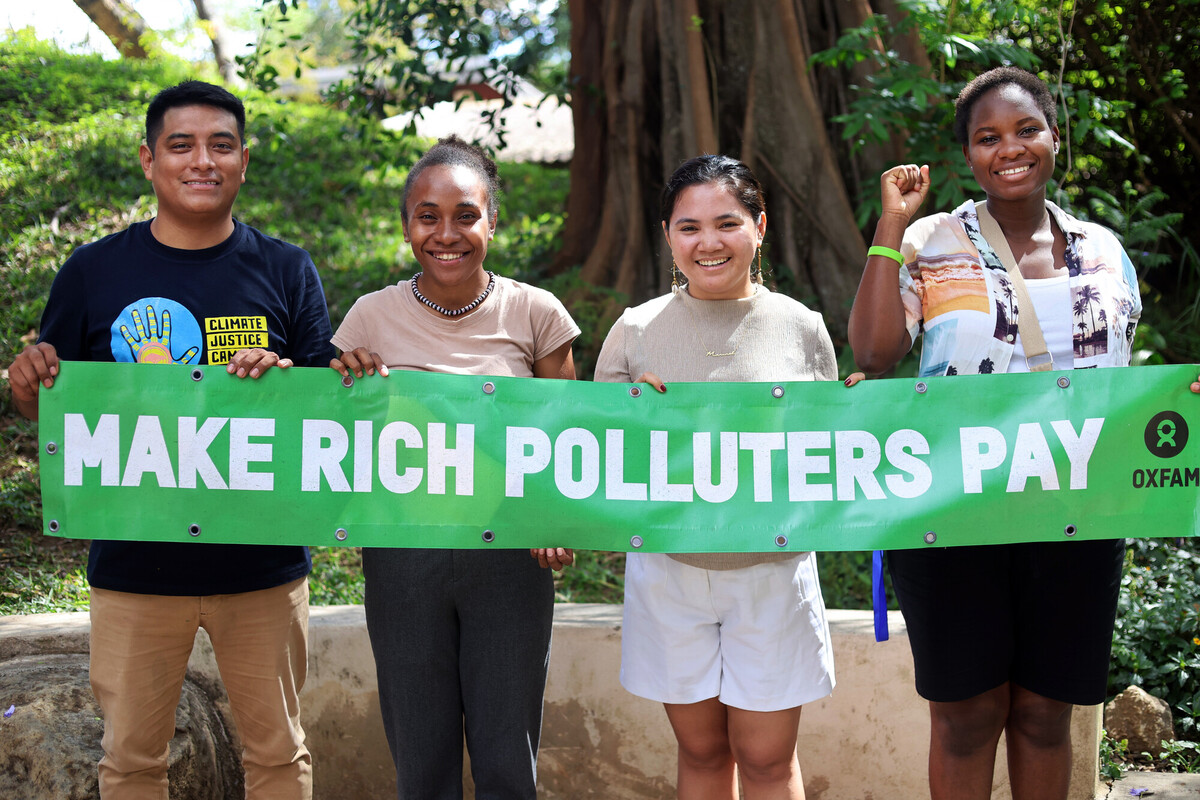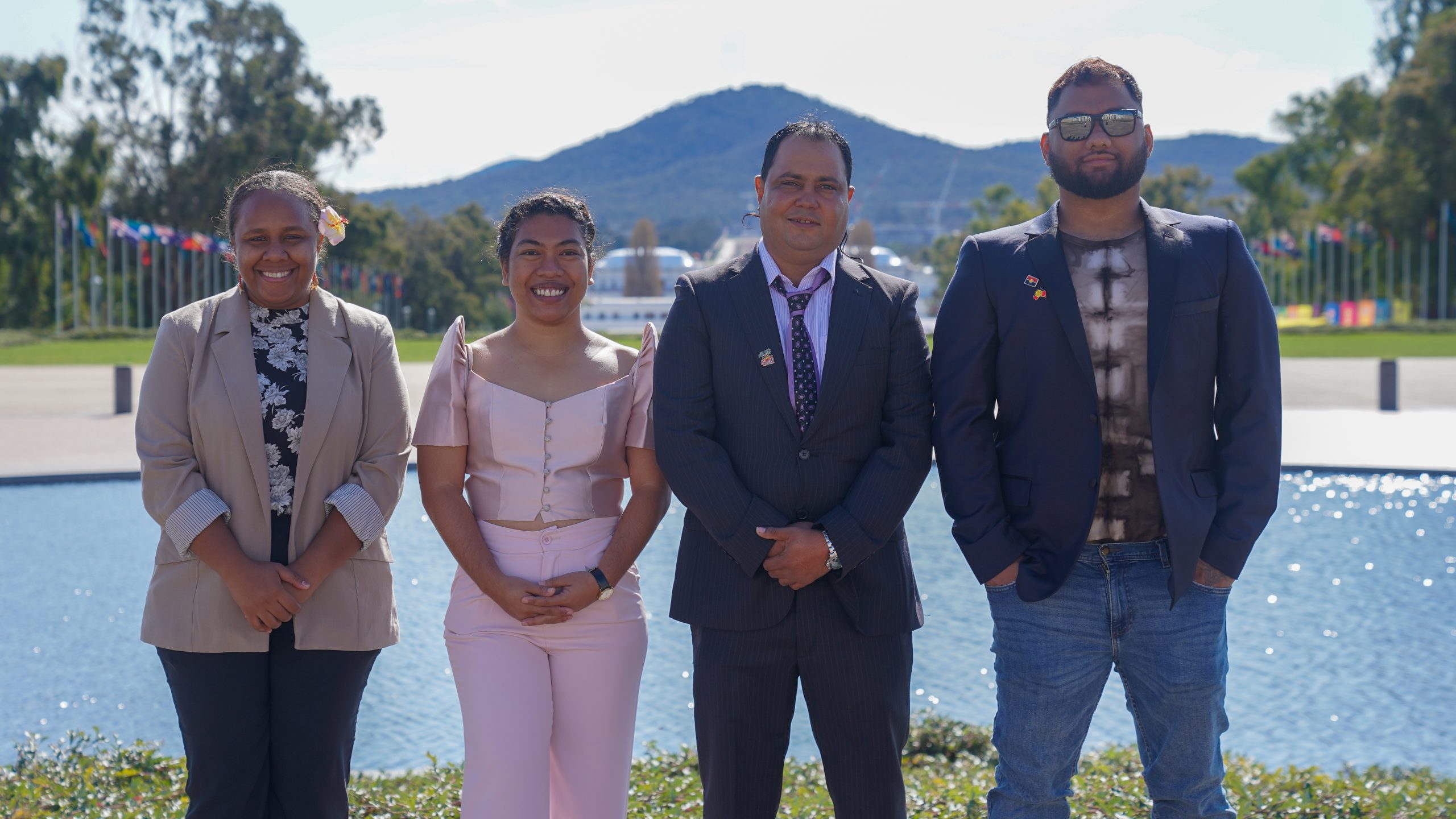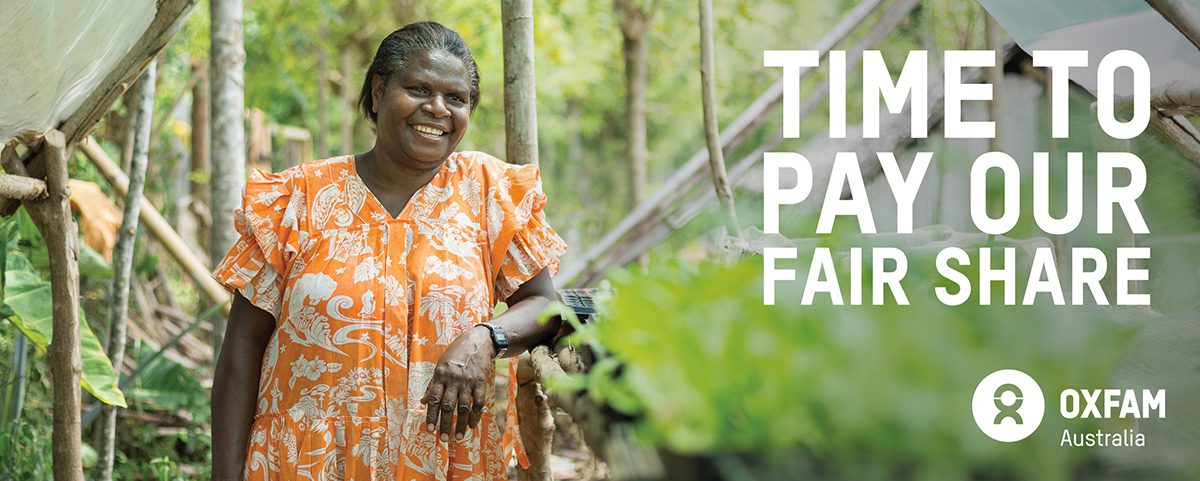Last month Oxfam launched a campaign calling on the World Bank to freeze their large land acquisitions for 6 months.
Why? Because banks and private investors are buying up land in the developing world at an alarming rate, often resulting in people losing their homes and the land they grow their food on.
Over the last few weeks, thousands of people across the world have called for the World Bank to be a leader in this area. The Bank is listening, though they’ve not yet agreed to change their policies.
So in a series of blogs, we are exploring why the World Bank has, so far, rejected our calls. We will also explain why we don’t accept the Bank’s contention that they’re not the right target.
One reason the World Bank has given for rejecting Oxfam’s call for an investment freeze is what I’ll call the “throwing the baby out with the bath water” argument. They argue that a freeze will result not just in pulling the plug on projects that have had a devastating human cost, but also on projects that are benefiting the very people that Oxfam seeks to support. In particular, because Oxfam is calling for a freeze on agricultural land acquisitions, the World Bank claims that this could harm small scale farmers, who represent the poorest group of people in the world.
To be clear, Oxfam has never argued (and never will) that the World Bank should not be investing in agriculture. That’s precisely because Oxfam is committed to helping the most vulnerable people in the world, such as small scale farmers. What we want to ensure is that as the World Bank’s investment in agriculture increases (from $2.5 billion in 2002 to $6-8 billion in 2012), that this money is genuinely benefiting poor people.
We are not calling for the Bank to get out of agriculture altogether, but for a temporary 6 month freeze on agricultural investments that involve large-scale land acquisition. We recognise the value of investing in agriculture but oppose a particular type of agricultural investment which involves the mass transfer of land rights away from poor farmers and communities, and frequently leads to conflict and poverty. Oxfam welcomes agricultural investment – both large-scale and small – which benefits communities and is based on consultation and consent.
A freeze creates the time and space needed to make sure that the necessary regulations are in place to protect poor people. This isn’t a new or untried method. The Bank has actually employed this method before, when it froze lending to the palm oil sector as a result of a controversial case in Indonesia.
Despite the Bank’s current public stance, the actions of thousands of people have made them sit up and listen at their highest levels. It’s great that the World Bank is engaging with the campaign publicly and have acknowledged that abuses exist and share our concern that land grabbing is a problem.
What’s more, there is still a big chance to influence the World Bank. As a multi-billion dollar player in the purchasing of land and a global standard setter and policy advisor to developing countries, the World Bank and their new President Jim Kim are in a unique position to be a force for good and make a difference to poor communities around the world.
By Clancy Moore, Oxfam’s GROW Campaign Coordinator



